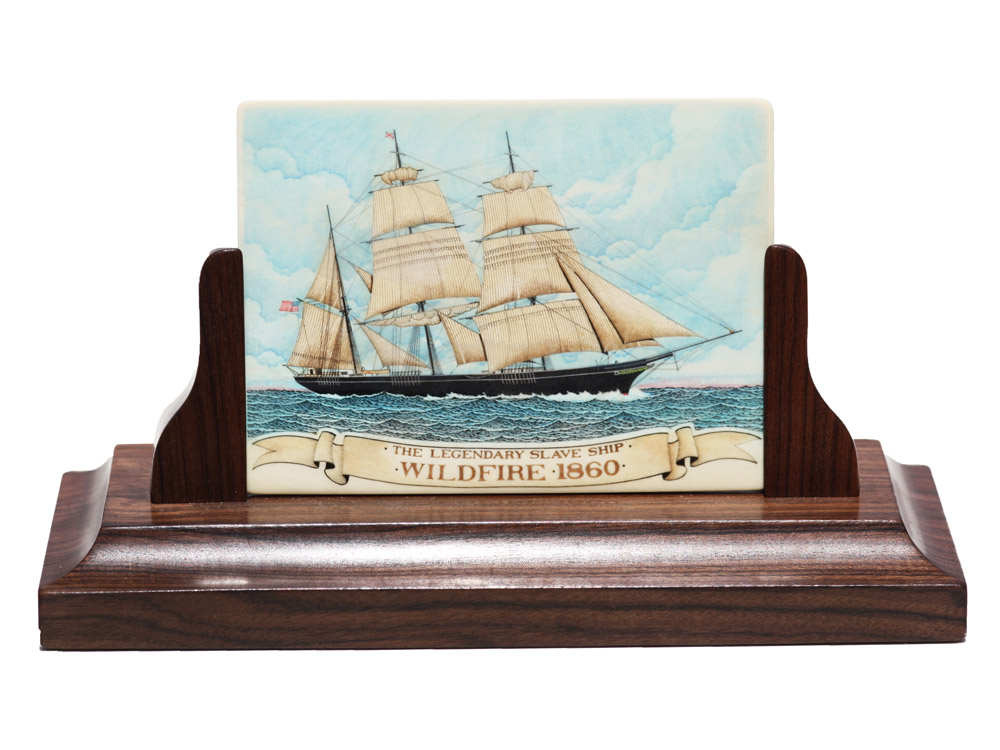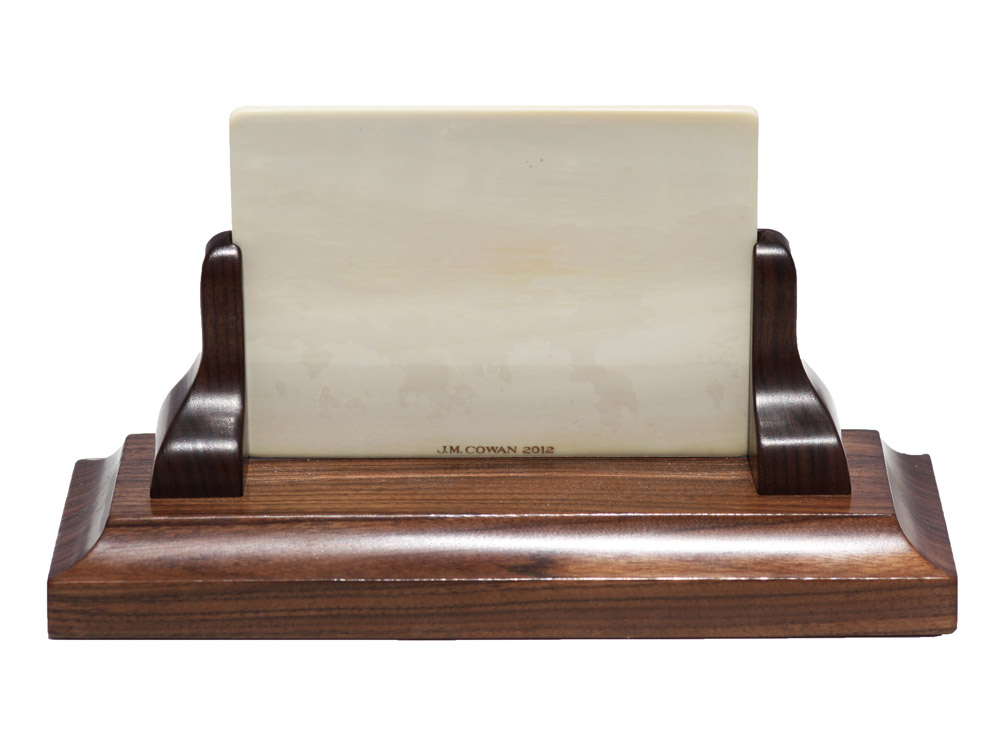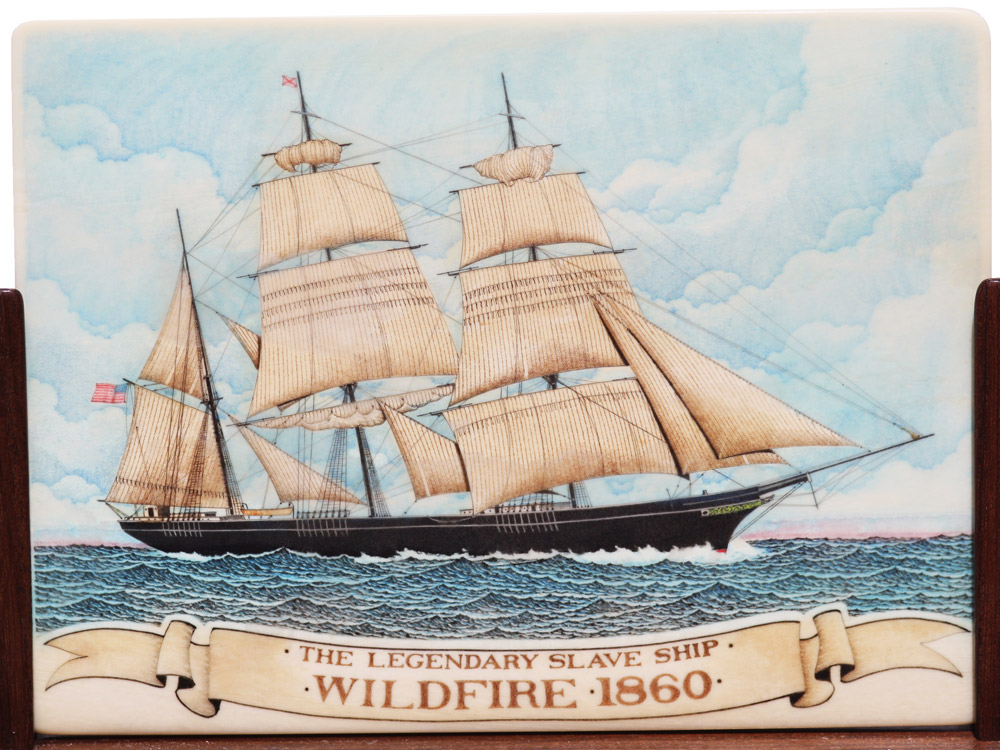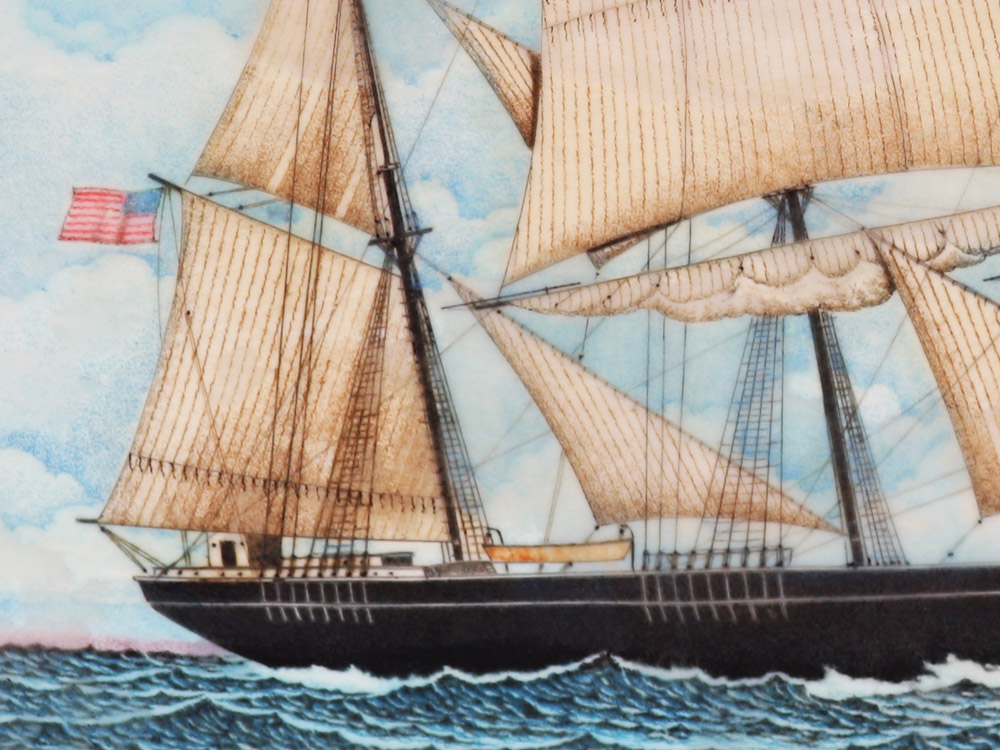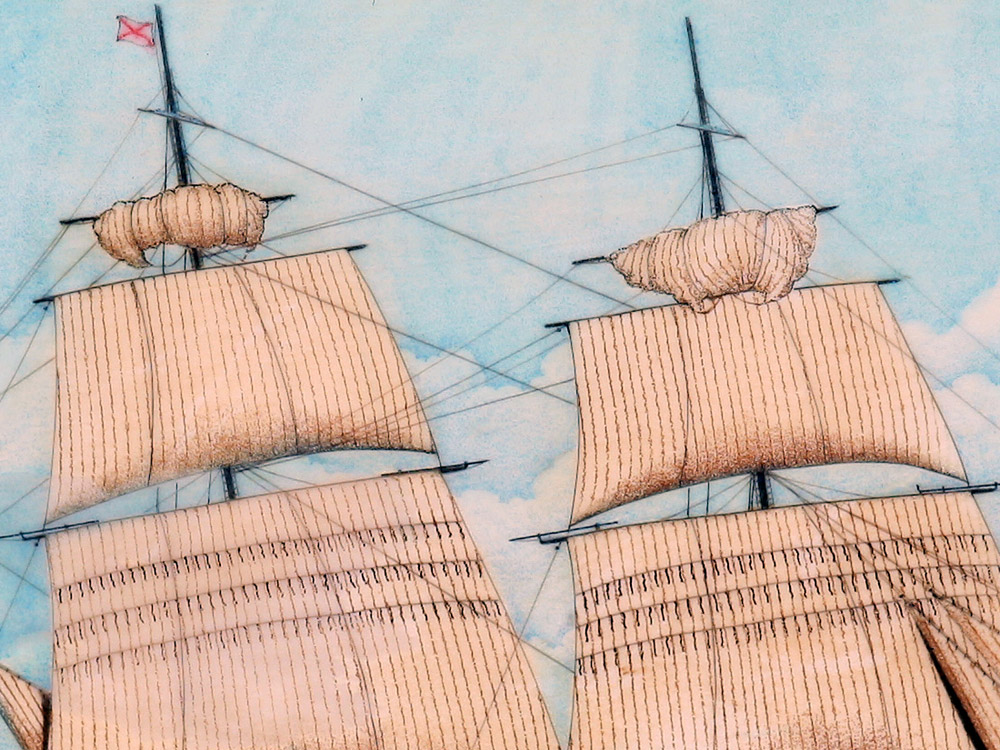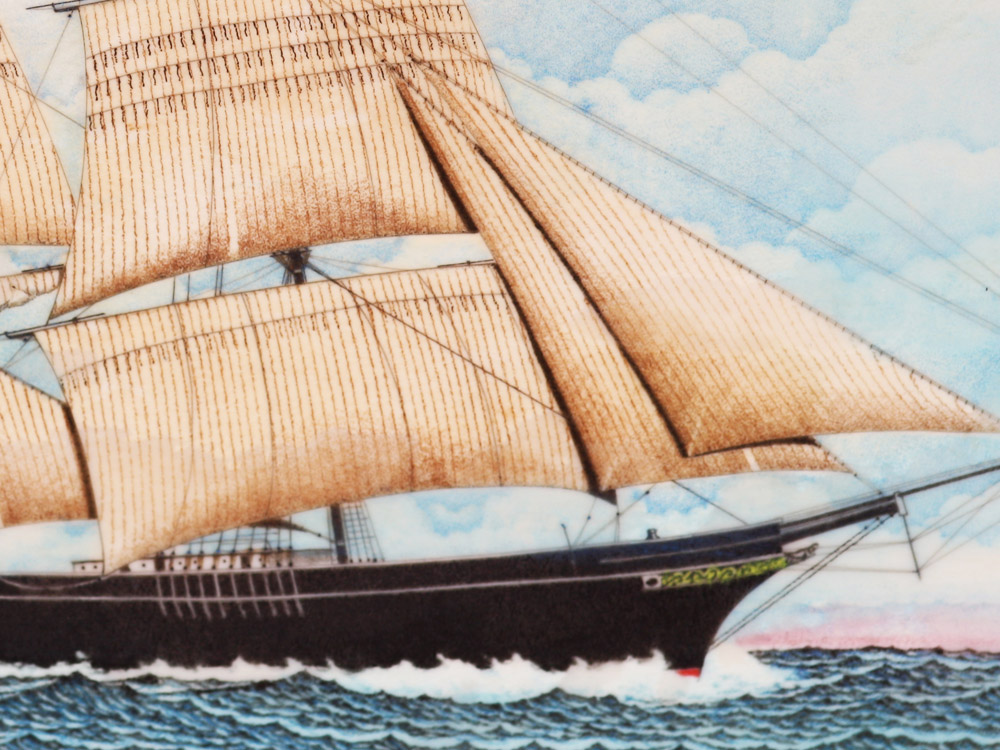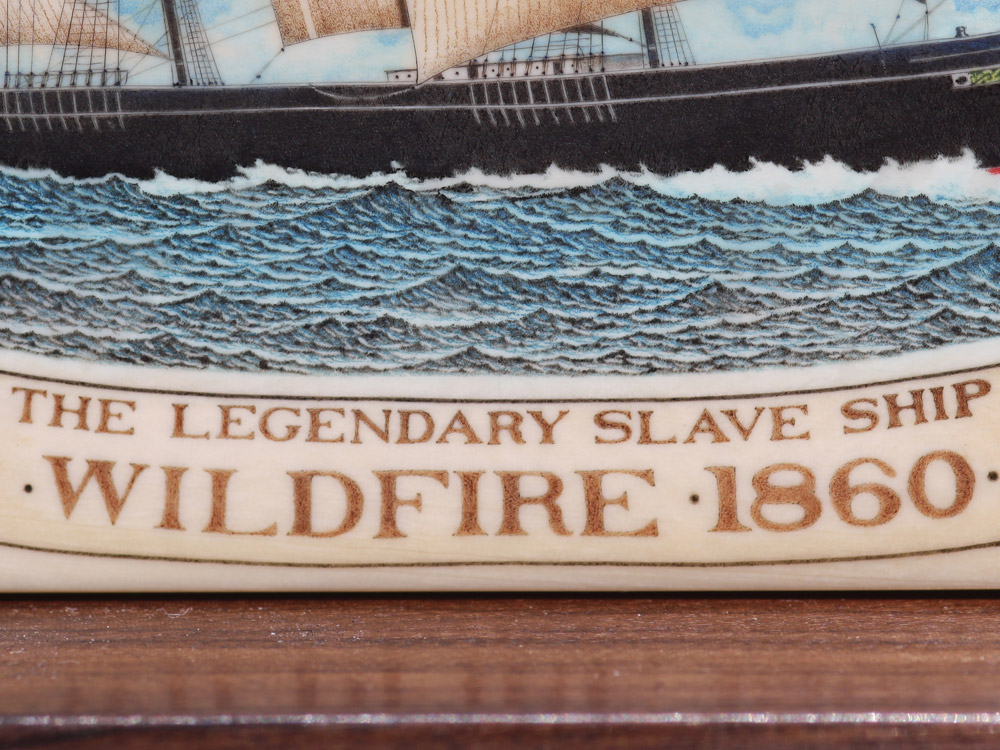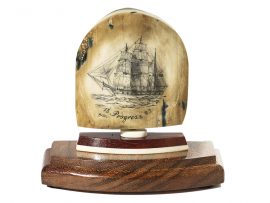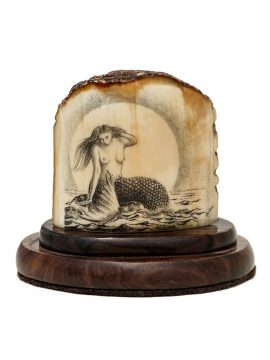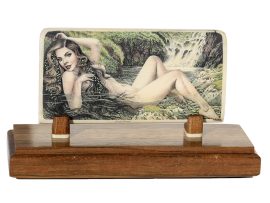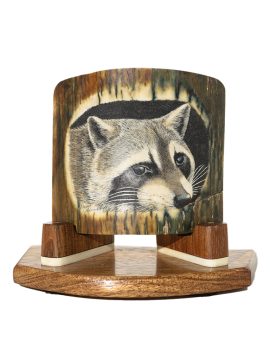The Legendary Slave Ship: Wildfire 1860
$3,800.00
Color scrimshaw on pre-ban African Ivory by Joel Cowan. When it comes to detailed (and I do mean detailed) ship portraits, there is Joel Cowan and then there is everyone else. Working in time consuming stipple technique, Cowan does thousands and thousands of tiny dots for each prized portrait. We have worked with Cowan for several decades and are fortunate enough to have accumulated several of his pieces. These are prized by knowing collectors throughout the U.S. and abroad and many collectors have several Cowans in their collections. Now is the perfect opportunity to acquire one for yourself.
Information from the internet:
Slave ships were large cargo ships specially converted for the purpose of transporting slaves, especially newly purchased African slaves to the Americas. Wildfire, a barque, arrested off the Florida coast by the US Navy in 1860; carrying 450 slaves.
Northern ships engaged in the Triangle Trade until the eve of the Civil War. In 1860 the slaver Wildfire set sail from New York for St. Thomas with a cargo of calico and other cotton goods. Its next stop was the Congo River, where the crew installed a new deck in the hold, creating a cramped space with four feet of clearance, specifically to house captives. In March the ship set sail for Cuba, with 615 naked prisoners, most of them teenagers. 450 captives were lodged on deck, the rest were crammed below. Ninety people died during the five weeks it took the ship to reach the coast of Cuba, where it was captured by the US Naval steamer Mohawk. The Mohawk towed the ship to Fort Taylor on Key West. There the captives were lodged in a brand new stockaded barracks on three acres of land outside of town. Within a month more than 900 more captives were brought to the compound, taken by the US Navy from the slave ships William and Bogota, both of which, like the Wildfire, had started their triangular voyages in New York City. By the end of May, with 1,350 people crowded into the barracks, Congress contracted with the American Colonization Society to ship the captives back to Africa. By the end of June all the captives had been abandoned in Liberia — save the 295 unfortunate souls who had died in the Florida stockade.
Notice:
This scrimshaw is done on pre-ban African ivory. Since the passage of the CITIES Treaty in 1973, there has been no African ivory brought into the U.S. However, ivory that was in the U.S. prior to 1973 can be legally sold and shipped within the U.S. However, new legislation taking effect in 2016 restricts pre-ban African Ivory from being shipped interstate. It can only legally be shipped intrastate, (within the state). All of our pre-ban ivory is located with our associate in the state of Florida. It can be purchased directly from our website and shipped only to an address within the state of Florida. If one has a relative, trusted friend or business associate within the state of Florida, we can ship to that specified address in order to comply with the new Federal legislation. The scrimshaw can then be forwarded it to you and everyone complies with the law. Any questions email or call us.
In stock

